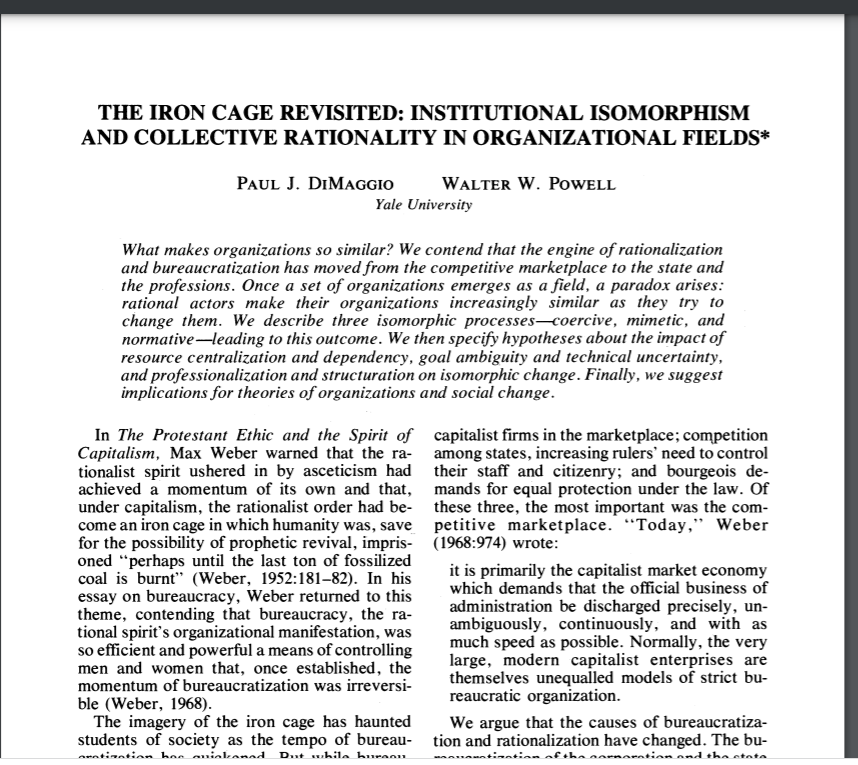
רעיון על ה #הפרשה לכבוד מוצ״ש:
שאלה מפורסמת היא למה יעקב ״החריש״ כשהא שמע מה עשה שכם לבתו. ולא רק שהתנהג כאילו לא שמע כלום עד שהגיעו בניו אלא שנתן לבניו לנהל את משא והמתן עם חמור ושכם ואז נתן לשמעון ללוי לעשות מה שהם עשו.
מה גרם לו להיות כל כך פאסיבי?
אולי יש רמז+
שאלה מפורסמת היא למה יעקב ״החריש״ כשהא שמע מה עשה שכם לבתו. ולא רק שהתנהג כאילו לא שמע כלום עד שהגיעו בניו אלא שנתן לבניו לנהל את משא והמתן עם חמור ושכם ואז נתן לשמעון ללוי לעשות מה שהם עשו.
מה גרם לו להיות כל כך פאסיבי?
אולי יש רמז+

בפסוק א׳ של הפרק.
מה זאת אומרת שדינה יצאה ״לראות בבנות בארץ?״ מה היא ראתה בכלל? ולמה התורה מציגה את המפגש הזה בינה לבין בנות בארץ בצורה כל כך עמומה? יתכן שהמפגש הזה מאוד חשוב- זו מעין כותרת לסיפור!
מה זאת אומרת שדינה יצאה ״לראות בבנות בארץ?״ מה היא ראתה בכלל? ולמה התורה מציגה את המפגש הזה בינה לבין בנות בארץ בצורה כל כך עמומה? יתכן שהמפגש הזה מאוד חשוב- זו מעין כותרת לסיפור!

לא רק זה אבל אם יעקב מתבונן היטב במה שעבר על דינה, הוא ישמע עוד הדים מהחיים שלו
״ותצא דינה״ מזכיר ״ויצא יעקב״
״ויאהב את הנער(ה)״ מזכיר ״ויאהב יעקב את רחל״
להבדיל יש גם הקבלה בין ״וישכב אותה״ לבין ״וישק יעקב לרחל״
״ותצא דינה״ מזכיר ״ויצא יעקב״
״ויאהב את הנער(ה)״ מזכיר ״ויאהב יעקב את רחל״
להבדיל יש גם הקבלה בין ״וישכב אותה״ לבין ״וישק יעקב לרחל״
מה המשמעות של כל זה?
אציע רעיון בקרוב אם מעוניינים לשמוע.
אציע רעיון בקרוב אם מעוניינים לשמוע.
או קיי אז כמו שקשה לנו להבין מה המסר בזה שמה שעבר על דינה מזכיר את ״סצנות הבאר״ הקודמות (והעתידה לבוא) ובמיוחד זו שיעקב עצמו חווה, יתכן שגם ליעקב היה קשה להבין מה המסר שה׳ מהעביר לו באמצעות ההקבלות הללו. אך אם הוא אכן חשב שיש מסר מה׳ כאן, יתכן שהוא חשש שזה מסר *ביקורתי*+
כאילו שה׳ מסביר ליעקב שהוא לא התנהג כראוי כשהוא הגיע לחרן ושהתנהגות של שכם כלפי דינה זה סוג של עונש עבור התנהגותו של יעקב כלפי רחל (ולאה).
ואם אכן כך הוא חשב, יש לפחות 3 סיבות לזה שהוא ״החריש״ ונהיה פאסיבי:
ואם אכן כך הוא חשב, יש לפחות 3 סיבות לזה שהוא ״החריש״ ונהיה פאסיבי:
א. אם זה עונש מה׳, כנראה מגיע לו עונש אז מה הוא יכול לעשות?
ב. איך שהוא הרגיש באותו רגע מזכיר את איך שעבד אברהם הרגיש שגם הוא התפלא לראות את יד ה׳ במה שהתרחש בסצנת באר, ״והחריש״ לראות איך שהדברים יתגלגלו.
ג. אם שכם הוא יעקב, אז יעקב הוא לבן. ויעקב לא רצה להיות לבן!
ב. איך שהוא הרגיש באותו רגע מזכיר את איך שעבד אברהם הרגיש שגם הוא התפלא לראות את יד ה׳ במה שהתרחש בסצנת באר, ״והחריש״ לראות איך שהדברים יתגלגלו.
ג. אם שכם הוא יעקב, אז יעקב הוא לבן. ויעקב לא רצה להיות לבן!

שתי הערות סופיות:
1. ההסבר הזה משתלב אם את התזה שפיתחתי במאמר הזה (thelehrhaus.com/scholarship/te…), שלפיה במשך העשרים שנה שיעקב שהה בחרן, נהיה יותר ויותר ברור שהעיסקה הראשונה בין יעקב ללבן היתה מאוד בעייתית, מפני שהם התיחסו לאחיות ככלי מין ורבייה.
1. ההסבר הזה משתלב אם את התזה שפיתחתי במאמר הזה (thelehrhaus.com/scholarship/te…), שלפיה במשך העשרים שנה שיעקב שהה בחרן, נהיה יותר ויותר ברור שהעיסקה הראשונה בין יעקב ללבן היתה מאוד בעייתית, מפני שהם התיחסו לאחיות ככלי מין ורבייה.
2. ההסבר הזה גם משתלב אם ההסבר (לא זוכר מי הציע) שבני לאה חשדו שהפאסיביות של יעקב נובעת מזה שלא היה איכפת לו מילדי לאה. הרי אם יש מישהו שעלול לחשוב שיעקב לא התיחס כראוי כשהן הגיע לבאר, זה בני לאה. אז הם היו עלולים לחשוד עכשיו שיעקב *הזדהה* עם שכם
סוף/
מה אתם חושבים?
שבוע טוב!
סוף/
מה אתם חושבים?
שבוע טוב!
@threadreaderapp unroll
• • •
Missing some Tweet in this thread? You can try to
force a refresh





















